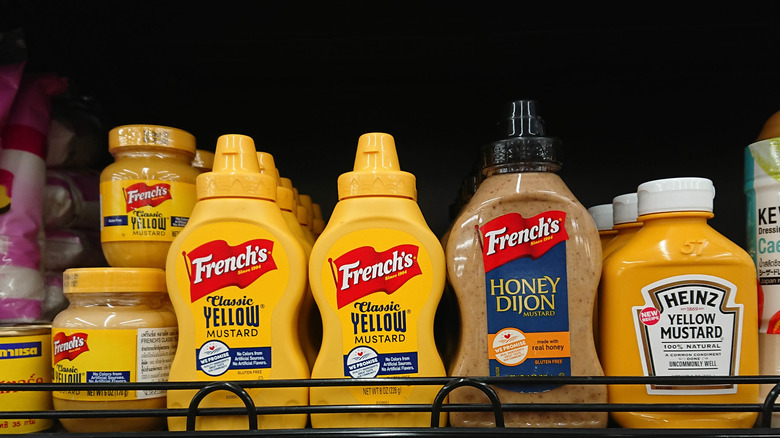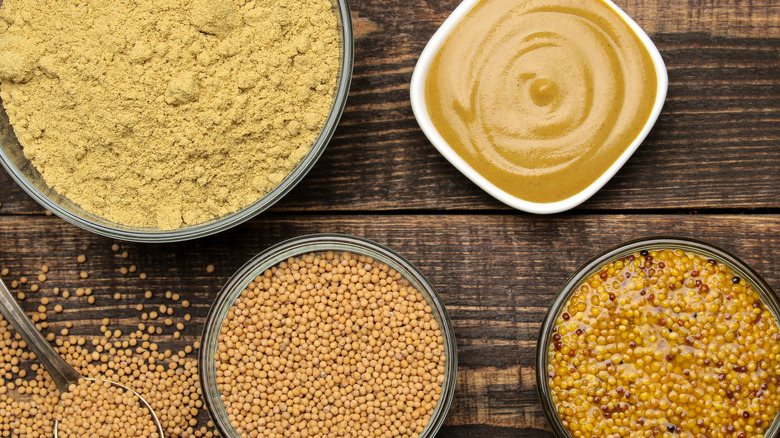What To Consider Before Storing Mustard In The Pantry
Second only to ketchup, mustard is a condiment with just about as many uses as there are varieties. Drizzle yellow mustard on a ballpark hotdog, dunk nuggets into honey mustard, or whisk Dijon into salad dressings — the ways to add this zesty sauce to your favorite meals are limitless. An ingredient that can be found in anyone's kitchen, there's often some debate as to where mustard is best stored. Should you opt for the pantry, there are a few things to consider beforehand.
Essentially, mustard is made by mixing whole, cracked, or crushed mustard seeds with a liquid like vinegar, water, or beer. Although seed variety can affect a mustard's heat, the type of liquid used to saturate crushed grains can make an even bigger impact as it can slow or accelerate the transformation of glucosinolates into spicy-tasting isothiocyanates (via America's Test Kitchen). Since acidic liquids can prevent spicy molecules from forming, this leads to less piquant mustard, whereas water can make for a more fiery sauce.
Of course, to maintain its iconically punchy flavor, mustard should be stored properly. But, what exactly does proper storage look like? Should mustard be kept cool in the fridge or is it best stored in the pantry?
Room temperature storage can affect tanginess
Unlike fresh produce or dairy products, mustard doesn't usually contain any ingredients that risk going rancid. Given that mustard also boasts a high level of acidity, which acts as a preservative, Today reports that it's totally safe to keep mustard sitting on a pantry shelf even after it's opened — just ensure that the jar's not in direct sunlight. However, just because you can keep mustard in the pantry, that doesn't mean that you should.
While it's not necessary to refrigerate, McCormick explains that some varieties like horseradish or Dijon mustards can lose their zesty flavors much faster when not kept at cooler temperatures. That said, if you prefer keeping the condiment in the pantry, be aware that quality (and flavor) will start to diminish a lot faster than mustard that's been stored in the fridge. Regardless of where mustard is stored, FoodSafety.gov shares that most commercial mustards are shelf-stable for up to one year after opening. But, since mustard still risks oxidation and cross-contamination, it should be tossed if you notice any abnormal aromas or the presence of mold.

